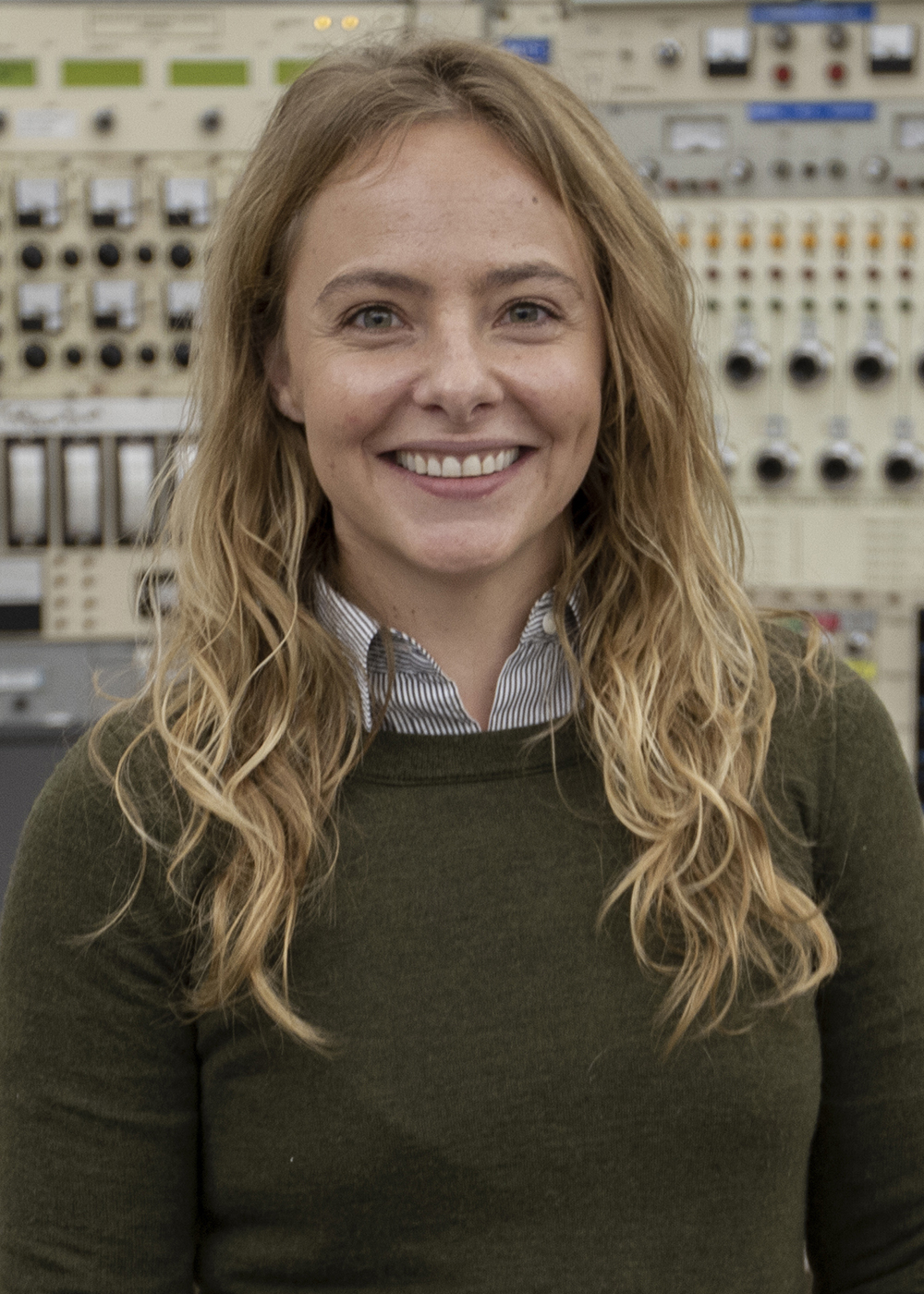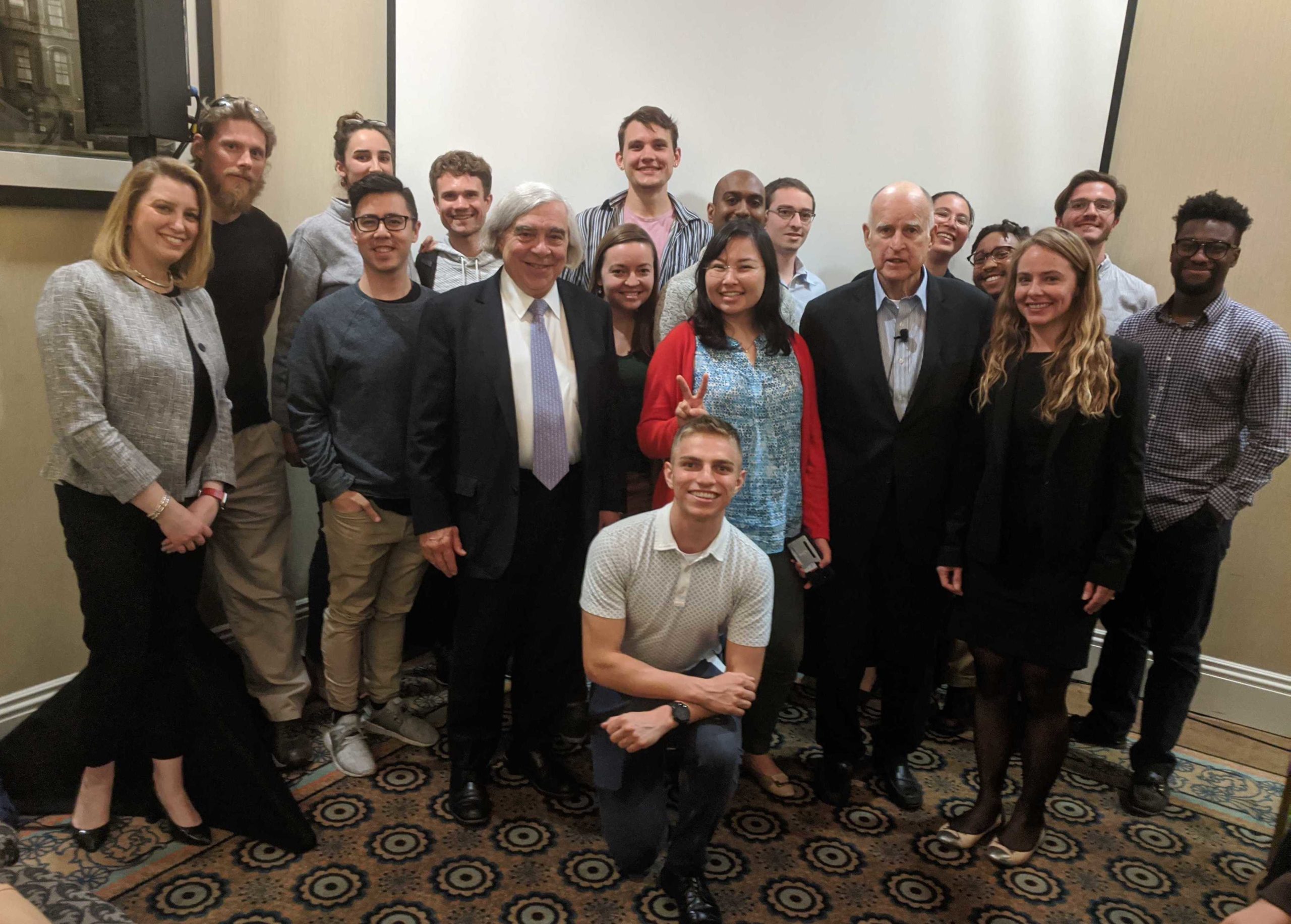Read the full newsletter here:
https://indd.adobe.com/view/a8d6976b-78e5-45ac-9acc-6533a76f8738
JUN
Posted by:
Read the full newsletter here:
https://indd.adobe.com/view/a8d6976b-78e5-45ac-9acc-6533a76f8738
Press Release from https://www.krellinst.org/
Location Ames, Iowa
Date Wednesday, April 29, 2020

Bethany L. Goldblum, a nuclear scientist at the University of California, Berkeley, is the 2020 recipient of the Krell Institute’s James Corones Award in Leadership, Community Building and Communication.
Goldblum is a Department of Nuclear Engineering associate research engineer and executive director of the Nuclear Science and Security Consortium, a UC Berkeley-led collaboration of seven universities and five Department of Energy (DOE) national laboratories. The consortium, established with a $25 million grant from the DOE National Nuclear Security Administration (DOE NNSA), focuses on nuclear security and nonproliferation research and on training future nuclear experts. Goldblum was instrumental in the program’s renewal in 2016.
A selection committee comprised of representatives from the national laboratories, academia and Krell cited Goldblum’s “exceptional achievement in nuclear physics and nonproliferation leadership; her pivotal role in creating high-profile nonproliferation organizations both regional and national, with an international reach; her dedicated mentorship of early-career scientists; and her efforts to teach young scholars in engineering, political science, physics and public policy a common language around nuclear threats.”
The award honors the late founder of the Krell Institute, a nonprofit organization based in Ames, Iowa, that serves the scientific and educational communities. “Dr. Goldblum is a wonderful choice for this award,” Krell Institute President Shelly Olsan said. “She embodies the values he held so highly, particularly her outstanding mentorship of young researchers. We’re delighted to honor her.”
Goldblum will formally receive the engraved award and $2,000 honorarium at a ceremony to be held later this year.
Juan Manfredi, a UC Berkeley postdoctoral researcher in nuclear engineering, nominated Goldblum, saying she has “enabled me to maximize my effectiveness as a researcher and my engagement with the work.” Goldblum, Manfredi wrote, balances guiding young scientists with encouraging them to make independent decisions about their research. She also is a gifted communicator who works with each person in her group to improve their ability to clearly convey ideas, Manfredi said.
Among her other activities, Goldblum is the founder and director of the Nuclear Policy Working Group, an interdisciplinary team of undergraduate and graduate students that develops policies to strengthen global nuclear security. Similarly, she leads the Bay Area Neutron Group (BANG), which fosters nuclear research collaborations involving university faculty, DOE laboratory scientists and students.
As a mentor, Goldblum has helped educate young nuclear scholars through the Public Policy and Nuclear Threats Boot Camp, which she has directed since 2013. The program brings together academics, national laboratory scientists, U.S. State Department officials and others to intensively train students in nuclear nonproliferation technology and policy.
Goldblum’s research focuses on fundamental nuclear physics for nuclear security applications, multisensor networks and data analytics, characterizing scintillators (materials that produce light when struck by a charged particle or high-energy photon) and nuclear energy and weapons policy. She collaborates with DOE laboratory staff and is an affiliate of Lawrence Berkeley, Lawrence Livermore and Sandia national laboratories.
Goldblum received a doctorate in nuclear engineering from UC Berkeley in 2007 and held a Clare Booth Luce Chancellor’s Postdoctoral Fellowship at the school before joining the nuclear engineering department at the University of Tennessee, Knoxville, in 2010. She returned to Berkeley in 2012.
Corones, a renowned researcher and administrator, led Krell from its start in 1997 until shortly before his death in 2017, building an organization known best for the prestigious scientific workforce-training programs it manages: the Computational Science Graduate Fellowship, supported by the DOE Office of Science, and the DOE NNSA-sponsored Stewardship Science and Laboratory Residency graduate fellowships. Before founding Krell, Corones was an administrator at the DOE’s Ames Laboratory, managed by Iowa State University, where he also was a professor. He held numerous lab posts from 1978 to 1997, including program director for applied mathematical sciences, program director for environmental technology development, deputy director and acting director.
The Krell Institute supports technology-based education and information programs with technical assistance, management expertise and communications products, and collaborates with agencies and institutions to foster the nation’s competitive advantage in science and engineering.

Former California Governor Jerry Brown, former U.S. Secretary of Energy and Nuclear Threat Initiative (NTI) Co-chair and CEO, Dr. Ernest J. Moniz, and Dr. Bethany Goldblum, nuclear physicist and Executive Director of the Nuclear Science and Security Consortium participated in an urgent conversation about today’s growing risk of nuclear use, as well as solutions that can bring us back from the brink.
A recording of the event is available here:
Amid increasingly tense relations with Russia and Iran, the advance of new technologies like cyber and artificial intelligence, and the persistent threat of terrorism, we face the highest risk of use of a nuclear weapon since the Cuban Missile Crisis. And according to the Doomsday Clock, which symbolizes the gravest threats to humankind, we’re now 100 seconds to midnight–closer to midnight than at any point since its creation in 1947. Like climate change, weapons of mass destruction pose an existential threat to the United States and the world.As we draw closer to the California primary and the 2020 election, it’s critical that voters educate themselves and demand that our leaders and candidates address today’s threats and the risks we will pass on to future generations.
About the Speakers
Gov. Brown, a UC Berkeley graduate, served as California’s Governor from 1975-83 and again from 2011-19. While he was Governor, California established nation-leading targets to protect the environment and fight climate change. Brown currently serves as chair of the California-China Climate Institute housed at UC Berkeley, executive chair of the Bulletin of the Atomic Scientists and on the board of the Nuclear Threat Initiative.
Described by CQ Magazineas a “rock star physicist,” Dr. Moniz is a leader on reducing the existential risks posed by nuclear and other weapons of mass destruction, as well as climate change. As Energy Secretary, he negotiated the Iran nuclear agreement with then-Secretary of State John Kerry. In 2017, he took the helm of NTI, a nonprofit, nonpartisan global security organization focused on the reduction of nuclear and biological threats.
Dr. Bethany Goldblum is founder and director of the Nuclear Policy Working Group, a research-based educational programming effort that provides opportunities for students from a variety of fields to conduct multidisciplinary research on topics in nonproliferation and nuclear security. She also serves as executive director of the Nuclear Science & Security Consortium, a program to develop a new generation of laboratory-integrated nuclear experts.
The event is co-sponsored by the Nuclear Science and Security Consortium, Nuclear Threat Initiative and the Nuclear Policy Working Group and is free and open to the public. Light food and drinks will be provided.